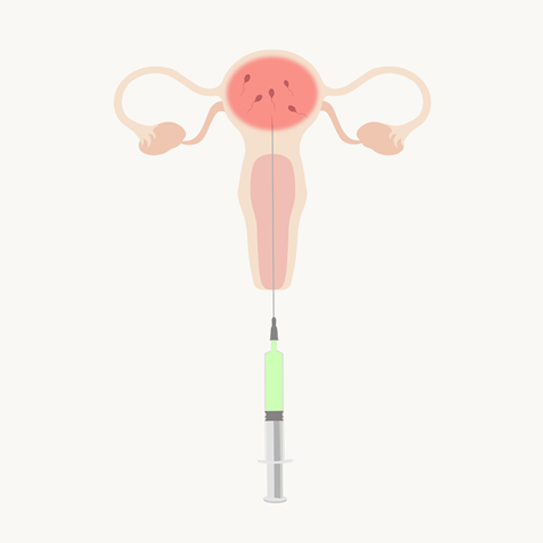Best clinic for IUI treatment in Bangalore
At Pristyn Care clinic, the doctors provide the best IUI treatment in Bangalore. Our board-certified OB-Gyns are highly experienced and offering advanced solutions to increase the success rate of conception. Infertility cannot be controlled. But, there are several excellent technologies and ways to help couples embark on the journey of parenting and nurturing a new life. With the best, safest, and most effective IUI treatment for infertility in Bangalore, we at Pristyn Care are constantly trying to deliver happiness in the lives of people. All the clinics are well-equipped with state-of-the-art medical instruments to make the IUI treatment as smooth as possible.
How to prepare for IUI treatment?
IUI (Intrauterine Insemination), in the simplest sense, is to place the concentrated and washed semen directly into a woman’s uterus.
This is why, for it to work, you need three essential factors:
- Healthy semen
- Healthy eggs
- Healthy uterus
This is why, as you prepare for IUI, your infertility specialist consults you to run a few diagnostic tests to specifically understand the health condition of both partners and investigate their family’s medical history. We suggest you and your partner both take these tests simultaneously as they are essential to devise the right fertility plan best suited for you.
Another key factor in IUI is your body weight. Your body weight is a direct result of your hormones, health, and metabolism. And if any of it fluctuates, it affects your ovulation and quality of eggs and sperm production. This is why, if your body weight is not proportional to your height, we suggest you consciously work on it. Include some moderate exercises, slow yoga, and breathing exercises in your everyday life. Switch to a healthier diet and eat at the set and regular intervals. This would not help you achieve a healthy weight, but also train your body to produce the right hormones and fluids at the right time, thus preparing you for pregnancy.
Also, as the base rule, we suggest, the couple quits smoking, drinking, and recreational drugs along with a cut down on caffeinated products and packaged food. These not only affect your fertility but also raise unwanted anxiety and heart palpitations.
What are the diagnostic tests done for male partners before IUI?
Tests advised for male partners before IUI are as follows:
1. Semen analysis – As the name suggests, semen analysis is the lab test of your sperm sample. This is done to understand the health, quality, and motility of your sperm count.
2. Imaging tests – Imagining tests are the tests that use specialized ultra rays to print an internal image of the human body and note down any specific abnormality. For male infertility, these tests typically include ultrasound and MRI of male genital areas.
3. Hormone testing – The hormone testings are done to estimate the balance of testosterone and other male hormones in the male. If need be, your doctor could also refer you to a reproductive endocrinologist for this.
4. Testicular biopsy – In rare cases or for males in their late 40’s, a testicular biopsy may be employed. This is done using a tissue sample from the male scrotum. The sample is then sent for a lab test for depth analysis on any particular abnormality or growth of abnormal cells in the male reproductive system.
5. Genetic testing – As the name suggests, genetic testing is used to examine the presence of any contributing genetic defect to the couple’s infertility.
What are the diagnostic tests done for female partners before IUI?
Tests advised for female partners before IUI are as follows:
1. Blood tests – Blood tests are typically the first tests conducted to examine your health history and primary reasons for infertility. These test your hormone and thyroid levels and help filter any abnormalities
2. Imaging tests – Imaging tests such as pelvic ultrasound, MRI, and sonography are the second immediate tests to diagnose female infertility. This helps examine structural abnormalities in the uterus and ovaries of women. If need be, laparoscopy or hysteroscopy may be employed.
3. X-ray hysterosalpingogram (HSG) – HSG test is done to examine any structural blockages in the fallopian tubes. For this, your OB-GYN injects a clinically safe dye inside your cervical opening and monitors its movement through your fallopian tube.
4. Ovulation testing – Ovulation test is a simple blood test done to determine if you are ovulating or not. Based on the same, your OB-GYN puts you on ovulation drugs.
5.Test for ovarian reserve – As the name suggests, ovarian reserve tests help examine the number of eggs available in your ovaries for ovulation. For the same, your doctor does a few hormone testings at the beginning of your menstrual cycle.
6. Endometrial Biopsy- Endometrial biopsy is a definitive test done to check any abnormalities in the endometrial lining of the female uterus. For this, your OBGYN uses a tissue sample of your uterine lining and sends it for a lab test.
List of IUI Doctors in Bangalore
| 1 | Dr. Shilpa Gupta KS | 86821 | 5.0 | 15 + Years | Docube Healthcare, Second Floor, KEERTHI SURYA SHAKTI TOWERS, Circle, ITPL Main Rd, near Hoodi, Whitefield, Bengaluru, Karnataka 560048 | Book Appointment |
| 2 | Dr. Anjani Dixit | DLH 2013 0000613KTK | 4.8 | 13 + Years | 31, 80 Feet Rd, HAL 3rd Stage, Bengaluru | Book Appointment |











.svg)









